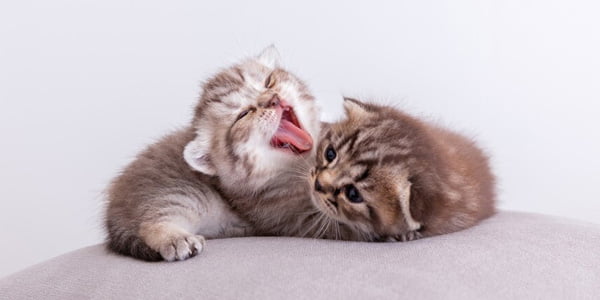Certainly! Feline Herpesvirus, also known as Feline Viral Rhinotracheitis (FVR), is an infectious disease caused by feline herpesvirus type-1 (FHV-1). Here are some key points about this virus:
- Transmission and Symptoms:
- Cats become infected through direct contact with virus particles in saliva, eye, and nasal discharges from infected cats.
- FVR is a major cause of upper respiratory disease in cats and the most common cause of conjunctivitis (inflammation of eye tissues).
- Symptoms include sneezing, nasal discharge, coughing, and eye inflammation.
- Carrier State:
- Once infected, cats become carriers of the virus.
- Most carriers remain latent, meaning the virus remains inactive within their bodies.
- Stress or illness can reactivate the virus, making the cat infectious again.
- Infectious Period:
- Cats can infect others during the incubation period (2 to 5 days after exposure).
- Active infection typically lasts 10 to 20 days.
- Reactivated infections may cause respiratory symptoms.
- Environmental Survival:
- The virus survives in moist environments.
- Contaminated items (e.g., food bowls, litter boxes) remain infective for up to 18 hours.
- Proper hygiene helps prevent transmission.
- Severity and Mortality:
- FVR can be severe, especially in kittens and cats with weakened immune systems.
- While not all cases lead to death, severe infections can be fatal.
- Vaccination doesn’t fully protect against infection, as cats may still encounter the virus.
Read more about our product, https://www.ringbio.com/products/pet/feline-herpesvirus-igg-antibody-elisa-kit

